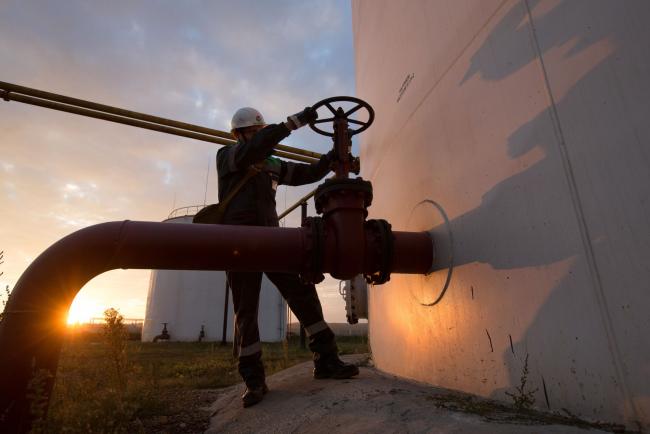(Bloomberg) -- Oil steadied after posting its biggest annual gain in three years amid elevated tensions in the Middle East and signs that U.S. crude stockpiles fell further.
Futures held near $61 a barrel in New York. An Iran-backed Iraqi militia withdrew from the U.S. embassy in Baghdad after storming the compound to protest deadly airstrikes. The American Petroleum Institute reported crude inventories fell again last week, according to Reuters. Official data is due on Friday.
Oil had a strong end to last year following an agreement by the Organization of Petroleum Exporting Countries and its allies to deepen output cuts, and a breakthrough in the U.S.-China trade dispute. President Donald Trump said he will sign the first phase of a deal on Jan. 15 and later go to Beijing to begin talks on a second stage. There were other bullish signs for crude with the 50-day moving average for West Texas Intermediate rising above the 200-day marker.
“The New Year is starting in an upbeat mood,” said Tamas Varga, an analyst at PVM Oil Associates Ltd. “The oil balance is to get tighter provided OPEC will keep fulfilling its swing producer role.”
WTI for February delivery rose 19 cents, or 0.3%, to $61.25 a barrel on the New York Mercantile Exchange as of 10:20 a.m. London time. The contract lost 62 cents on Tuesday. Futures advanced more than 34% in 2019.
Brent for March settlement climbed 35 cents, or 0.5%, to $66.35 a barrel on London’s ICE (NYSE:ICE) Futures Europe exchange, and traded at a $5.34 premium to the WTI for the same month.
The rare direct U.S. assault on the Iran-backed militia and the attack on the embassy in Iraq threatened to spiral into a broader confrontation. America and Iran are already facing off over the Trump administration’s crippling economic campaign against Tehran and suspected Iranian reprisals. Additional U.S. forces were ordered to the region after the embassy attack.
Nationwide American crude stockpiles fell by 7.8 million barrels and that at the storage hub of Cushing, Oklahoma, dropped by 1.4 million last week, Reuters reported, citing API data. The country-wide data compares with the 3 million-barrel decline forecast in a Bloomberg survey.
